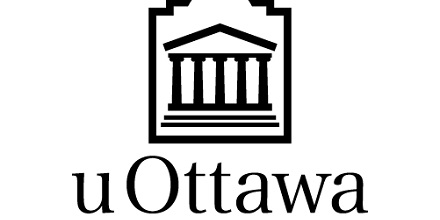Reduced Tuition Fees for Those Studying in French
Exonération des frais de scolarité : étudier en français

The University of Ottawa is pursuing its efforts to promote the use of French on the world stage. Its most recent initiative will substantially reduce tuition fees for foreign students who are either Francophones or Francophiles.
Beginning in the 2014-2015 academic year, new international students who are eligible for the tuition fee waiver will pay the same amount as Canadian students, a savings of over $10,000 per year.
“The University of Ottawa has decided to make its study programs more international, specifically by encouraging French-speaking students, fostering cultural diversity and ensuring a balance between official languages on campus. Our institution is working hard to advance the cause of French language and culture for current and future generations by promoting post-secondary education and research in French,” said the Right Honourable Michaëlle Jean, Chancellor of the University of Ottawa.
Not only will the tuition fee waiver attract more international students, it will also invigorate research activities at the University, thanks to the dual degree and cotutelle programs the University intends to create with new university partners.
For more information on the tuition fee waiver, please visit the University of Ottawa’s International Office website.
About the University of Ottawa
The University of Ottawa is the largest bilingual university in the world, where students can study in English, in French or in both languages. Located in the capital of Canada, a G8 nation, the University is committed to research excellence and encourages an interdisciplinary approach to knowledge creation. Its breakthroughs in health, science, social sciences and the humanities attract global attention and testify to its passion for discovery and its ranking among the top 10 research universities in Canada.
____________________________________________________________________
L’Université d’Ottawa poursuit ses efforts de promotion de la francophonie sur la scène internationale. Grâce à sa plus récente initiative, les étudiants étrangers francophones et francophiles bénéficieront d’une réduction substantielle de leurs frais de scolarité.
À compter de l’année scolaire 2014-2015, les nouveaux étudiants internationaux admissibles à l’exonération paieront désormais les droits de scolarité canadiens, une économie de plus de 10 000 $ par an.
« L’Université d’Ottawa a choisi d’intensifier l’internationalisation de ses programmes d’études, notamment en encourageant la francophonie, la diversité culturelle et l’équilibre linguistique sur le campus. Notre établissement s’applique résolument à promouvoir la langue et la culture françaises pour les générations d’aujourd’hui et de demain en favorisant la recherche et l’enseignement supérieur en français », a déclaré la très honorable Michaëlle Jean, chancelière de l’Université d’Ottawa.
Non seulement la politique d’exonération attirera davantage d’étudiants internationaux, mais elle stimulera aussi les activités de recherche de l’Université, grâce à des programmes de double diplôme et de cotutelles créés avec de nouvelles universités partenaires.
Pour plus de renseignements sur l’exonération, consultez le site Web du Bureau international de l’Université d’Ottawa.
À propos de l’Université d’Ottawa
À l'Université d'Ottawa, la plus grande université bilingue du monde, la population étudiante peut choisir d'étudier en français, en anglais ou dans les deux langues. Située au cœur de la capitale du Canada, pays du G8, l’Université soutient activement la recherche de pointe et favorise le développement des connaissances basé sur une approche interdisciplinaire. Ses avancées dans les domaines de la santé, des sciences et des sciences humaines et sociales attirent l’attention du monde entier et témoignent à la fois de sa passion pour la découverte et de la place qu'elle occupe parmi les 10 plus grandes universités de recherche du Canada.
Subscribe to our newsletter
